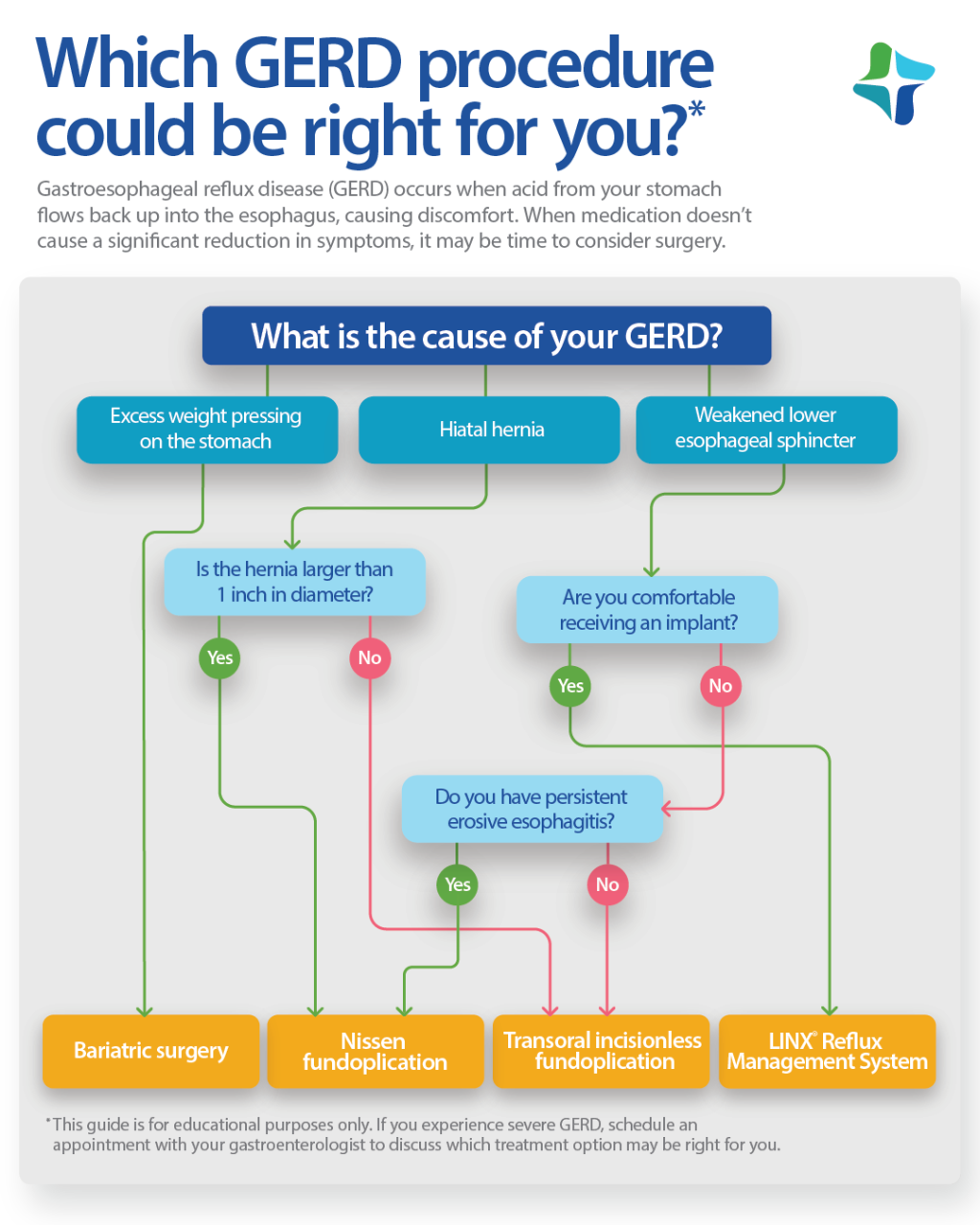St. Luke's Health joins CommonSpirit.org soon! Enjoy a seamless, patient-centered digital experience. Learn more

If it’s your first time seeking medical care for chronic acid reflux, also known as gastroesophageal reflux disease (GERD), your doctor will first look to some conservative treatment options, including diet changes, weight loss, and over-the-counter medications. If these changes do little to improve your symptoms, they’ll prescribe medications, and if those don’t work, your doctor may recommend surgery to help curb the symptoms.
Just as there are several medications on the market to prevent GERD, there are also several minimally invasive procedures that can achieve the same goal.
While all of these procedures focus on preventing stomach acid from traveling up the esophagus, they achieve this goal through different methods.
Surgeons can perform this as either a minimally invasive or an open procedure. It involves taking the top part of the stomach (the fundus), pulling it upward, wrapping it around the lower esophageal sphincter (LES), and stitching it together. Essentially, the top part of the stomach now hugs the LES, strengthening it and creating more pressure, so it’s more difficult for acid to escape from the stomach. This is typically an inpatient procedure.
This procedure is similar to Nissen fundoplication, except this surgery does not require any incisions. Instead, a surgeon inserts a long tube (endoscope) down the esophagus. This endoscope has a camera and tools on it that allow the surgeon to gently pull the bottom of the esophagus down and wrap the fundus around it, which they secure with fasteners that will stay in the body. This is typically an outpatient procedure.
The LINX Reflux Management System is an implant made up of several titanium beads that form a ring. During a minimally invasive procedure, a surgeon will make a few small incisions in the abdomen and use tools to secure the ring around the LES. This is typically an outpatient procedure.
The LINX implant places enough pressure on the LES to prevent stomach acid from pushing its way up the esophagus while still allowing people to perform normal actions like burping and vomiting when necessary.
While bariatric surgery, also known as weight-loss surgery, isn’t a direct treatment for GERD, it can help reduce the symptoms. That’s because excess weight in the abdomen can place pressure on the stomach and cause acid to travel up the esophagus. There are a variety of bariatric procedures that are available depending on a person’s unique needs. If you’re interested in learning more, sign up for one of our free virtual or in-person weight-loss seminars to get started.

No matter your digestive health concerns, our doctors are here to help. In fact, our digestive health program at Baylor St. Luke’s Medical Center has earned a designation as a top hospital for gastroenterology and GI surgery for 2021-22 from U.S. News & World Report. If lifestyle changes and prescription medications are doing little to improve your acid reflux, schedule an appointment with a St. Luke’s Health gastroenterologist or heartburn specialist today.
Looking for a doctor? Perform a quick search by name or browse by specialty.